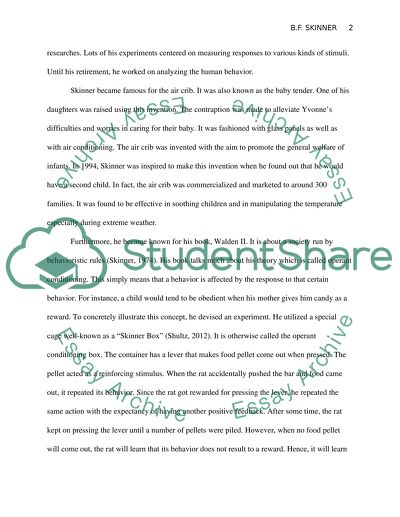Cite this document
(“Life and Works of Burrhus Frederic Skinner Research Paper”, n.d.)
Life and Works of Burrhus Frederic Skinner Research Paper. Retrieved from https://studentshare.org/education/1458460-life-and-works-of-burrhus-frederic-skinner
Life and Works of Burrhus Frederic Skinner Research Paper. Retrieved from https://studentshare.org/education/1458460-life-and-works-of-burrhus-frederic-skinner
(Life and Works of Burrhus Frederic Skinner Research Paper)
Life and Works of Burrhus Frederic Skinner Research Paper. https://studentshare.org/education/1458460-life-and-works-of-burrhus-frederic-skinner.
Life and Works of Burrhus Frederic Skinner Research Paper. https://studentshare.org/education/1458460-life-and-works-of-burrhus-frederic-skinner.
“Life and Works of Burrhus Frederic Skinner Research Paper”, n.d. https://studentshare.org/education/1458460-life-and-works-of-burrhus-frederic-skinner.


